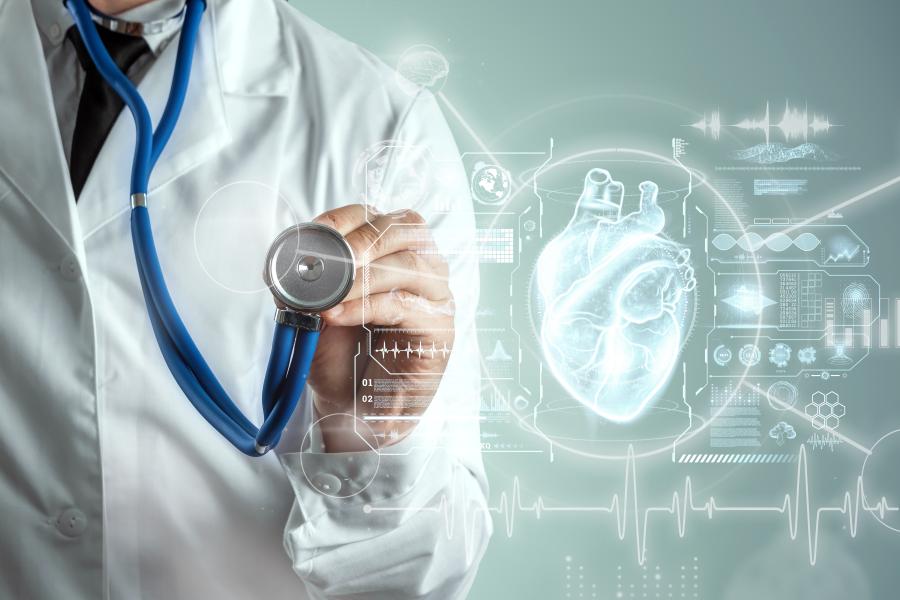
Predictive Analytics & Artificial Intelligence
Various groups across the NYU Langone Health enterprise use data and modeling to predict health outcomes. Our goal is to help clinicians and other staff in our health system make important clinical decisions in real time, increase operational efficiency, and develop as a learning healthcare system.
One such team is the Division of Applied AI Technologies (DAAIT) within NYU Langone’s Medical Center Information Technology (MCIT) Department of Health Informatics. Led by Yindalon Aphinyanaphongs, MD, PhD, we develop, test, implement, and evaluate predictive models, many using artificial intelligence (AI) methods, to improve care. Clinical models currently in use include prediction of patients at risk of deterioration, patients who have sepsis, and patients at high risk of near-term mortality.
The DAAIT group offers the following services:
- provide internal capacity for predictive modeling at NYU Langone to facilitate real-time clinical decision-making, increase operational efficiency, and build foundation for a learning healthcare system
- collaborate on projects from inception through development, deployment, and evaluation
- provide education and professional development to support building a data-driven organization
- build community for clinical data science and AI across NYU Langone
- facilitate external collaborations
- vet commercial AI-based technologies for implementation at NYU Langone
The DAAIT team can be reached at DAAIT@NYULangone.org.
Generative AI
Generative AI is a new type of AI that can create new content, such as images, videos, and text. Applications include ChatGPT, Google’s Gemini, and Microsoft’s CoPilot, among others. These applications are now being explored by scientists and clinicians but require further development and careful consideration before use. This technology has the potential for transformative change in how NYU Langone delivers patient care, educates, conducts research, and manages operations.
NYU Langone has partnered with Microsoft and other vendors to leverage these technologies in a private, safe, and secure manner. DAAIT is the collaboration hub for governance, expertise, and shared tools to maximize the effectiveness of generative AI customized for the NYU Langone community.
Please refer to the Generative Artificial Intelligence site within InsideHealth (Kerberos ID and password required) for more information on resources and requesting access to our secure Generative AI application.
Access NYU Langone’s Dedicated Generative AI Private Environment
As a member of the NYU Langone community, if you are interested in engaging with generative AI to support a specific project related to patient care, education, research, or operations, please submit a consultative request for access or a request to be granted exploration access for potential use cases.
Please keep in mind the following factors:
- Access to NYU Langone’s generative AI private environment occurs on a rolling basis to ensure a great experience for all users.
- Access is prioritized based on whether you are part of an innovation or research project, mentored exploration project, or exploration project.
- Users are notified by email regarding approval of access and must sign a data use agreement and are required to review further information on accessing our managed instance.
If you have a non-sensitive and non-business use for generative AI, please use the public ChatGPT. Please remember that it is of the utmost importance that any use of generative AI applications be in full compliance with existing policies and the law:
- You must not use any generative AI application in connection with or to generate your clinical documentation, such as notes included in the medical record or letters.
- You must not use any generative AI application with any protected health information, even if de-identified, or any other legally protected information.
- You must not use any generative AI application with any clinical or human subjects research data, even if de-identified.
- Do not disclose to any generative AI application any confidential business information.
- Do not permit any generative AI application to record or otherwise upload recordings of internal meetings or other non-public NYU Langone activities.
- Do not rely on any generative AI applications or rely on results from any generative AI application in your work at NYU Langone. You are responsible for independently verifying any generative AI content.
If you have any questions or concerns about this guidance, please contact us at Generative.AI@NYULangone.org.
Generative AI Resources
For more information on generative AI, please see the AI in Healthcare subject guide and NYU Langone Health AI Studio—Video Tutorials from the NYU Health Sciences Library.
Generative AI at NYU Langone: Our Future with ChatGPT, GPT, Bard, Bing, and Others
Dr. Aphinyanaphongs, Marc M. Triola, MD, and members of the DAAIT team hosted a generative AI webinar (Kerberos ID and password required) to explore the following topics: what is generative AI, why is it potentially transformative, and how can it be used at NYU Langone, as well as ethical implications of generative AI and appropriate use.

